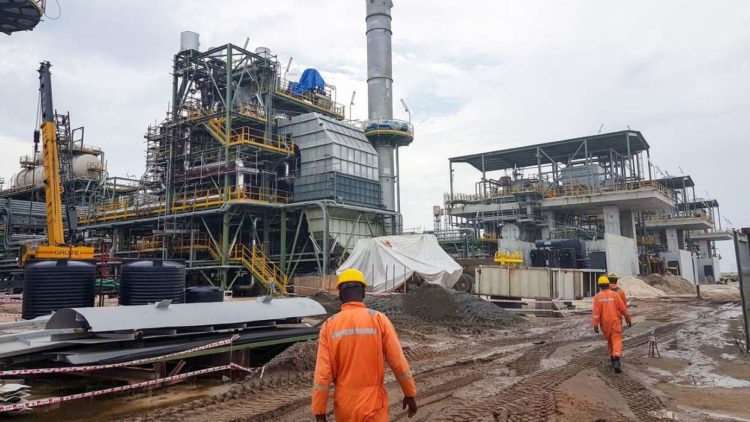By Julienne Manga
The 20 per cent stake of the Nigerian National Petroleum Corporation (NNPC) in the upcoming Dangote Refinery raised heckles from concerned citizens and shown the need for better understanding and clarity on the issues.
A deep dive shows that far from out of place, the investment is both visionary and in line with an existing policy of Nigeria having a stake in the critical energy sector. It also speaks to foresighted investment.

The Dangote Refinery at Ibeju Lekki is an ambitious integrated energy project. It will produce 650, 000 barrels of crude petroleum daily that makes it the largest such refinery in the world. Dangote Refinery would produce enough for Nigeria and export. In other words, it will meet our need for 57 million litres of petrol daily, 27 million litres of diesel per day, 11 million litres of kerosene per day and nine million litres of aviation jet each day.
In approving the NNPC move, the Federal Executive Council considered the strong case the corporation made. Nigeria needs to invest in the energy sector, directly building refineries or investing in projects that will meet the national energy need. The investment of $2.76billion in the Dangote Refinery is one of five planned for upcoming private refineries with a minimum capacity of 50, 000 litres per day. The goal is to guarantee national energy security. Citizens should therefore expect the nation to make more of such investments through the NNPC.
For years, NNPC has been a partner of all the big energy firms in the country involved in exploration through the joint venture strategy. Shell, Mobil, Total, Agip and the highly successful Nigeria LNG Limited have NNPC stakes. The investment aligns with the new direction and structure of NNPC as a public limited liability company in the months and years ahead. NNPC investment in the private refineries would grow the domestic refining capacity and improve petroleum products supply from local refineries.
There is a sound justification in investing in a private sector driven project: A resource-dependent country as Nigeria cannot but show interest, and have a stake, in a business that borders on energy security and has fiscal security implications for the economy.
Misunderstanding and possible mischief informed some narrative on social media that did apples versus oranges comparison of the Dangote Refinery and a 90-year old Sinclair refinery in the United States. The comparison was that HollyFrontier is buying an entire Sinclair Refinery for an investment of $2.6 billion. Except that the analyst failed to disclose the details hidden in those numbers.

NNPC’s 20 per cent stake would translate to 130, 000 barrels per day capacity from the brand new 650, 000bpd Dangote Refinery. It is already higher in capacity terms than what Sinclair can deliver at full capacity.
The combined business of HollyFrontier and Sinclair will have a refining capacity of 678, 000 bpd after the acquisition. HollyFrontier already has refineries, and is only adding Sinclair’s two refineries, with a combined capacity of 115, 000 bpd to its portfolio.
Of the 115, 000bpd capacity, the first refinery, with a capacity of 85,000 bpd, was built in 1924, 97 years ago while the second refinery with a capacity of 30,000 bpd, was built in 1992. The numbers show that NNPC is getting better value in capacity and in the age and potential of the refinery than the comparator
The NNPC investment compares to and aligns with the acclaimed efforts of the Japanese Ministry of Trade and Investment (MITI) in driving the policy and execution of that country’s industrialization. American economics professor Chalmers Johnson noted in his 1982 book, MITI and the Japanese Miracle: The Growth of Industrial Policy 1972-1975, that the intervention of MITI was critical to the successes of Japan. “The particular speed, form, and consequences of Japanese economic growth are not intelligible without reference to the contributions of MITI. Collaboration between the state and big business has long been acknowledged as the defining characteristic of the Japanese economic system”, Johnson states.
South Korea also adopted a similar practice in industrialisation. Strong business-government links including direct investments were significant contributors to changing the South Korea development narrative. South Korea also had a Ministry of Trade and Industry that worked with the Economic Development Board and the Ministry of Finance to drive policy direction and implementation.
NNPC is on the right track both in terms of policy direction and significance as well as in the absolute numbers generated by the investment in the Dangote Refinery.
Source: Vanguard










Read information now.
cost lisinopril online
Their worldwide reach ensures I never run out of my medications.